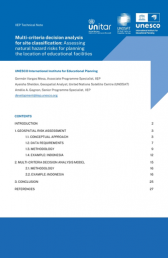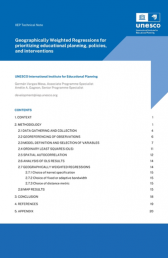
Languages
English
Series
Rethinking capacity development
Year
2009
Pages
50 p.
Online version
About the publication
Monitoring and evaluation of capacity development faces a fundamental dilemma. On the one hand, capacity development is a long-term process which occurs through a series of changes, related to values, attitudes and norms, which are diffi cult, if not impossible, to measure. On the other hand, evaluation tends to focus on short-term changes and to examine what is easy to perceive. As a result, at times we privilege short-term efforts which lead to visible change, even if they may be detrimental to sustainable improvement. However, when evaluation tends to focus on long-term impact, measurement and attribution diffi culties quickly become evident. Although there is no easy solution to this, some new approaches may succeed better in assessing the impact of capacity development. They are characterized by stronger participation by beneficiaries in the assessment of change. They use a mixture of qualitative and quantitative methods. They focus on the relevance of interventions in specifi c contexts. Most importantly, they want the monitoring and evaluation process to be a form of capacity development, in other words, participants learn through and from the evaluation about how the programmes and their own practices can change for the better.









